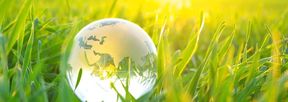EIT Climate-KIC: Open Call on Climate Innovation Ecosystem creation

The key objectives of innocation ecosystem call is to create the conditions that:
- nurture the capacity for systems innovation;
- establish networks of actors for developing and implementing innovation policy and learning amongst themselves.
Proposals can be submitted at any time from the launch of the intake until 1800 CET on Wednesday 27th February 2019.
Activities of the Geographies will consist of:
- Developing and deepening strategic dialogue with their partner and stakeholder communities,
-
Identifying where we need to:
- expand our network / teams
- concentrate our efforts to support the places / networks with the strongest ingredients for achieving transformational climate action, and;
- structure climate innovation ecosystems to optimise synergies between our Impact Goals and the main drivers and initiatives for climate action.
-
Specific activities, including Knowledge Triangle Integration (KTI) learning events, will be proposed by Geographies with the aim to strengthen 15 knowledge triangle integration partnerships and create or pursue 20 technical and scientific learning and co-creation activities involving knowledge triangle actors and national or sub-national public bodies.
Each Geography has produced its specific priorities and insights in relation to activities that will contribute to our portfolio of activities. A high-level description is listed below. Partners are advised to contact their local EIT Climate-KIC office to understand more about these priorities and discuss opportunities to contribute. Nordic GeographyIn this geography the three priority areas are:
- Alternative proteins, where there is an urgent need to develop a more self-sufficient protein industry and hence reduce the reliance of Nordic farmers on soya imports;
- Zero emission construction sites where major Nordic cities such as Oslo are wanting to tackle machinery and procurement issues;
- Oceans based bio-economy including algae and seaweed mariculture.
Read more news
Soil Laboratory Exhibition – Exploring the Dialogue Between Human and the Earth in Utsjoki
Soil Laboratory explores the relationship between humans and the earth as a living landscape through ceramic practices in Utsjoki.
The Finnish Cultural Foundation awarded grants for science and art
A total of 15 individuals or groups from Aalto University received grants
Environmental Structure of the Year 2025 Award goes to Kalasatama-Pasila tramway
The award is given in recognition of meritorious design and implementation of the built environment. Experts from Aalto University developed sustainability solutions for the project.






